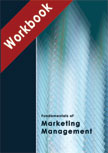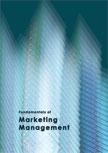Philips: Making Sense of Simplicity
|
|
ICMR HOME | Case Studies Collection
Case Details:
Case Code : MKTG163
Case Length : 19 Pages
Period : 2004-2007
Pub Date : 2007
Teaching Note :Not Available
Organization : Royal Philips Electronics, Inc.
Industry : Electricals and Electronics
Countries : Worldwide
To download Philips: Making Sense of Simplicity case study
(Case Code: MKTG163) click on the button below, and select the case from the list of available cases:

Price:
For delivery in electronic format: Rs. 400;
For delivery through courier (within India): Rs. 400 + Shipping & Handling Charges extra
» Marketing Case Studies
» Marketing Management Short Case Studies
» Case Studies Collection
» ICMR HOME
» Marketing Management Short Case Studies
» View Detailed Pricing Info
» How To Order This Case
» Business Case Studies
» Area Specific Case Studies
» Industry Wise Case Studies
» Company Wise Case Studies
Please note:
This case study was compiled from published sources, and is intended to be used as a basis for class discussion. It is not intended to illustrate either effective or ineffective handling of a management situation. Nor is it a primary information source.
Chat with us

Please leave your feedback

|
|




<< Previous
"So few of the products companies make these days are
designed so regular human beings can get them up and running in no time at all."1
- Charles Cooper, Executive Editor, CNET News.com, in
December 2006.
"After all, what is the purpose of designing a product for
consumers if they are not able to use it?"2
- Paul Ziven, CEO, Philips Electronics North America, in
December 2006.
"Many companies recognize the role of
design-led innovation. But we at Philips have gone one step further
with a special differentiator in this area: we believe in
simplicity-led design...which is our springboard to even greater
innovation."3
- Gerard Kleisterlee, President and CEO,
Philips, in January 2006.
Introduction
|
At the Consumer Electronics Show (CES)4
2007 held at Las Vegas, Royal Philips N.V. (Philips), a major player in
lighting, medical technology, and consumer electronics, won a CES Innovation
Award for the VoIP841, a VoIP5 phone that
allowed users to make calls over the Internet without a PC. The company unveiled
several other products at the event including the Ambilight range of TVs, the
Pronto touch screen universal remote controls, and the AmbiSound home theaters.
Each of these products supposedly exemplified the essence of 'Sense and
Simplicity', the company's new brand promise, in that they were advanced in
technology yet had easy-to-use interfaces and simple designs.
|

|
Philips, a Dutch company, started off as a manufacturer of light bulbs and
electrical equipment. Over the years, it remained at the vanguard of
technology, credited with several inventions such as the audiocassette, the
CD, the DVD, etc.
|
|
However, despite its technological prowess, Philips'
financial health deteriorated in the 1990s, partly because of a lack of
focus, as the company operated in too many industries, and partly
because of poor marketing, especially in the intensely competitive
consumer electronics industry. The company then embarked on a major
restructuring exercise, which included selling off several businesses.
In 1995, Philips launched the "Let's make things better" campaign to
rejuvenate the Philips brand. Though the campaign was successful in its
primary objective, the top management felt that it failed to convey the
design excellence and technical superiority of Philips' products.
Therefore, in 2004, the 'Sense and Simplicity' campaign was launched. |
Philips: Making Sense of Simplicity
- Next Page>>
|
|









